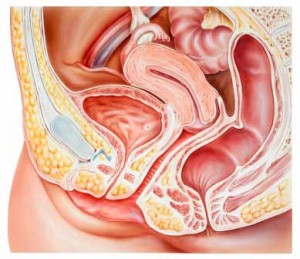
How Severe is Your Prolapse? Understanding Your Prolapse Diagnosis
How severe is your prolapse diagnosis? Are you worried you may need prolapse surgery? Is your prolapse beyond repair without surgery? It‘s often confusing to

How severe is your prolapse diagnosis? Are you worried you may need prolapse surgery? Is your prolapse beyond repair without surgery? It‘s often confusing to

Are you trying to avoid pelvic prolapse surgery? Would you like to reverse your prolapse? This Physiotherapy prolapse information teaches you about: How to improve

Is bowel incontinence making your life miserable? Bowel incontinence is a debilitating problem that can impact upon your lifestyle, ability to work and self esteem.

Rectocele is a challenging and embarrasing problem to deal with. This rectocele video and information helps you manage rectocele, reduce your risk of rectocele worsening

Many women are terrified of straining with constipation and worsening their prolapse problems. Straining causes and worsens prolapse. Stool softener foods can help avoid straining

Are you looking for ways to relieve painful hemorrhoids now? These practical hemorrhoid relief techniques by Pelvic Floor Physiotherapist Michelle Kenway help you relieve pain

These prolapse symptoms give you very useful information about whether your exercises may be overloading your pelvic floor. If you’ve had prolapse surgery this information

What is a pelvic prolapse? A pelvic prolapse is like a hernia in the vagina where supporting tissues in the pelvis are unable to retain

10 Pelvic Floor Physiotherapist tips to give you immediate relief of gas pain after hysterectomy

Are you sick and tired to of constipation and prolapse problems? Constipation and prolapse is often the result of a cycle of straining, incomplete emptying and

What is Vaginal Prolapse ? Vaginal prolapse is a common condition with an estimated one in two women suffering from this condition. Read on now

Pelvic organ prolapse self management involves prolapse exercises and ongoing prolapse protection strategies. Read on to learn the health professional answers and techniques for these

There are a number of key steps you can take to avoid recurrent pelvic organ prolapse, and this includes after vaginal surgery for uterine prolapse, prolapsed bladder (cytocoele) and bowel prolapse (rectocoele). The same protective principles apply to women after rectal prolapse surgery. This 6 minute video outlines the short and long-term practical strategies you can use to reduce your risk of repeat prolapse and further pelvic sugery.

This video teaches you how to use your bowels without straining your pelvic floor. Expert physiotherapist guidance teaches you the ‘Brace and Bulge’ technique, important to use lifelong for a healthy pelvic floor.
© 2009-2024 Pelvic Exercises